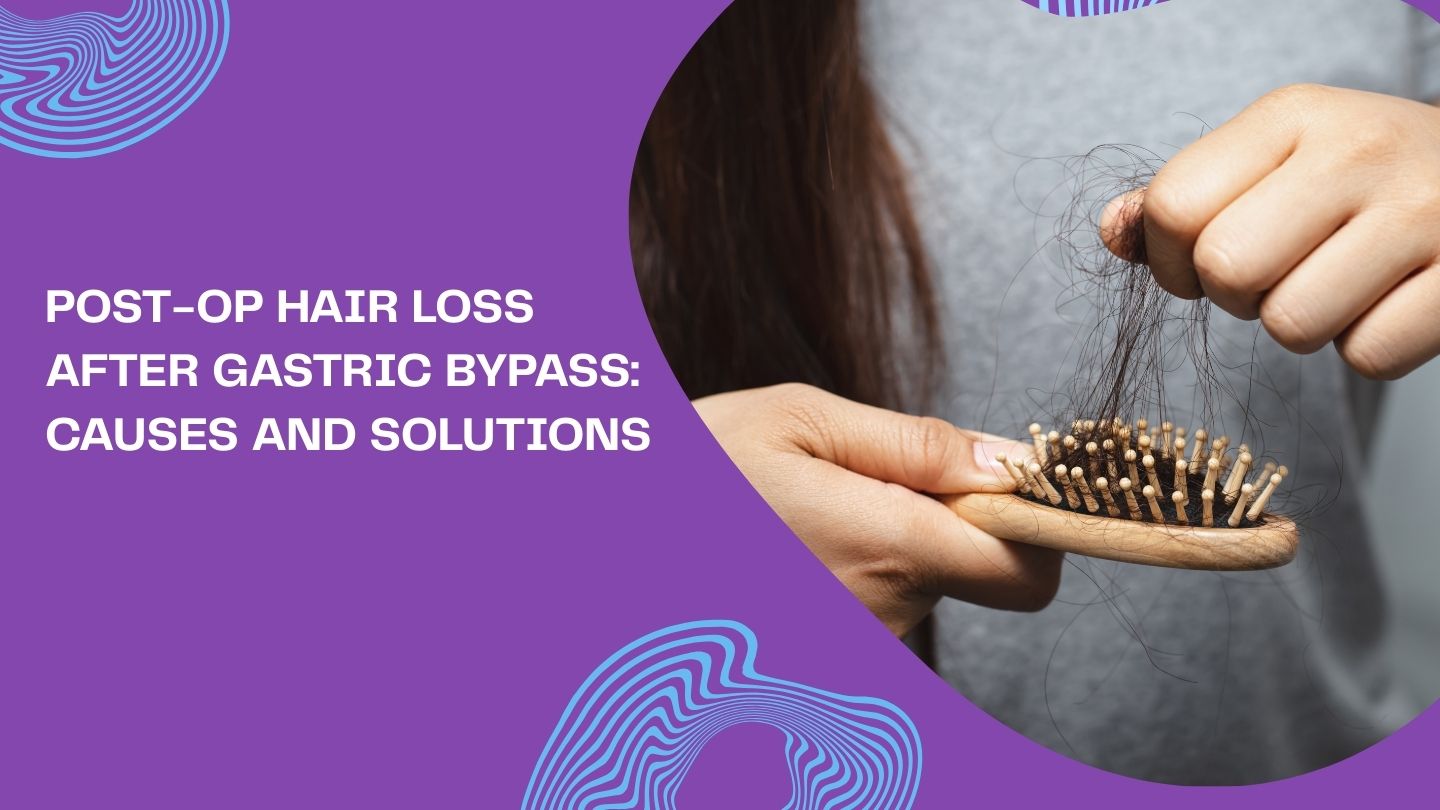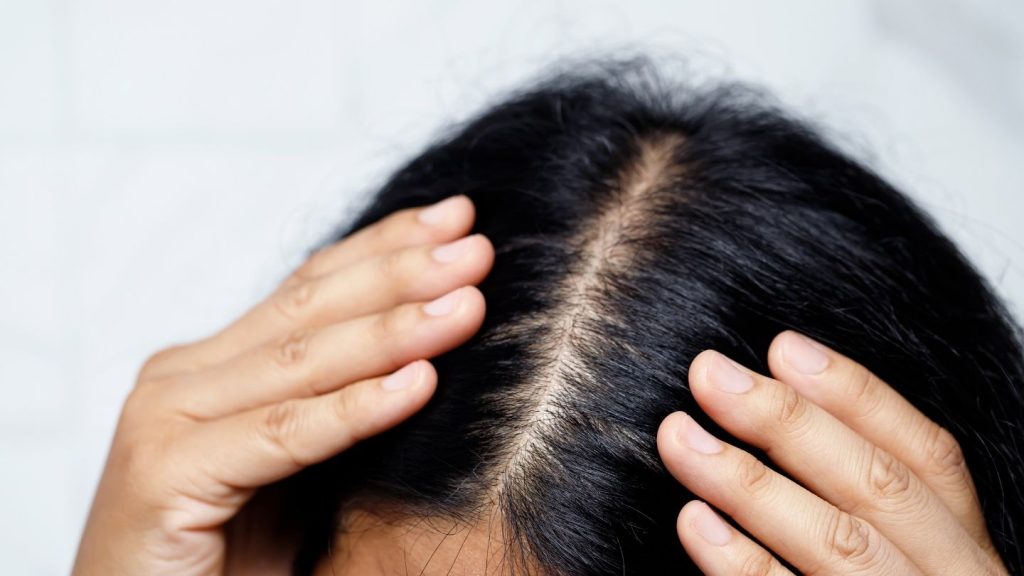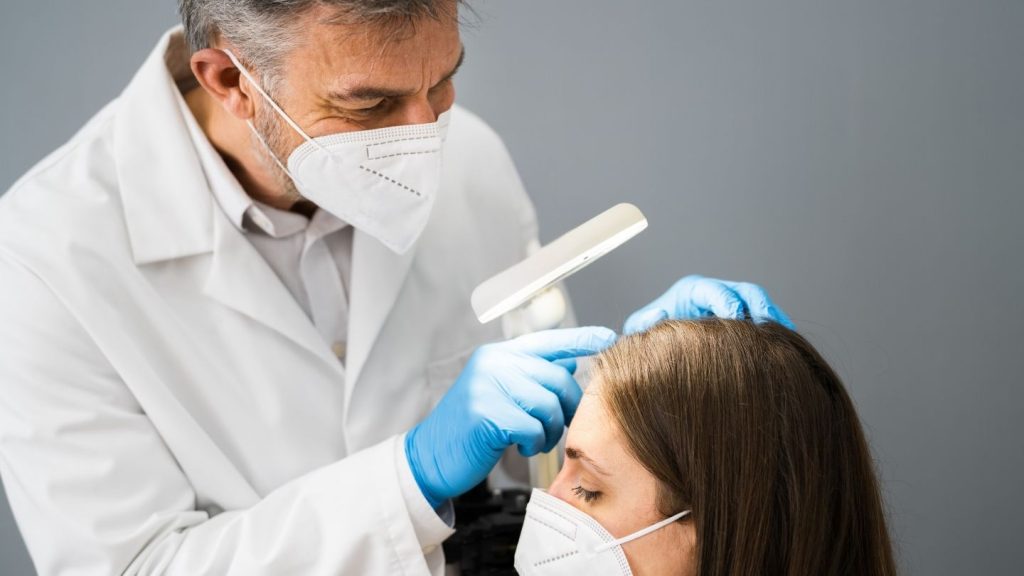
Post-Op Hair Loss After Gastric Bypass: Causes and Solutions
Hair loss after gastric bypass surgery is a common but often surprising concern for many patients. It typically happens due to rapid weight loss, surgical stress, and potential nutrient deficiencies during recovery. While it can feel alarming to experience hair thinning, the good news is that it’s usually temporary and manageable. Understanding the causes is the first step toward finding effective solutions. In this blog, we’ll explore why post-op hair loss happens and share practical tips to help you address it.
Key Takeaways
- Post-gastric bypass hair loss is primarily caused by physiological stress, rapid weight loss, and nutritional deficiencies, particularly in zinc, iron, and folic acid.
- Managing hair health involves ensuring adequate nutrient intake, regular monitoring of deficiencies, and implementing stress management techniques alongside dietary adjustments.
- Medical treatments exist for persistent hair loss, but regular consultations and monitoring are essential for effective management post-surgery.
Causes of Hair Loss After Gastric Bypass

Patients undergoing gastric bypass often experience hair loss, a temporary but common side effect. This significant hair loss can be unsettling, but understanding the reasons behind it can help mitigate anxiety. The rapid weight loss associated with bariatric surgery is a key trigger for patients to experience hair loss, as the body undergoes significant metabolic changes. When comparing gastric bypass surgery vs. the gastric sleeve, it’s important to note that both procedures can lead to temporary hair thinning due to similar shifts in nutrient absorption and rapid weight reduction.
Physiological stress from the surgery itself and the rapid changes in body weight can exacerbate hair loss, causing a condition known as telogen effluvium. This stress pushes hair follicles into a resting phase, leading to increased hair shedding. Additionally, post-surgery dietary restrictions can result in nutritional deficiencies, such as a lack of essential vitamins and minerals, further contributing to hair loss. The main contributing factors are:
- Physiological stress from surgery
- Rapid changes in body weight
- Nutritional deficiencies due to post-surgery dietary restrictions, including a lack of essential vitamins and minerals
Recognizing these causes enables weight loss surgery patients to address the issue effectively. Below, we explore specific factors contributing to hair loss after gastric bypass surgery.
Nutritional Deficiencies
Nutritional deficiencies are among the most common reasons for hair loss after bariatric surgery. Zinc, folic acid, and iron are particularly vital for maintaining healthy hair. A deficiency in zinc, for instance, can lead to hair loss and other health issues such as impaired immune response.
Studies indicate that 64% of patients experience zinc deficiency within a year after Roux-en-Y gastric bypass. Similarly, folic acid levels play a crucial role in hair follicle health, with a deficiency rate of 19.2% observed a year after gastric sleeve surgery.
Iron deficiency can also cause hair loss by impairing keratin production.
Telogen Effluvium
Telogen effluvium is a condition characterized by diffuse hair loss and is commonly seen after weight loss surgery. Key points about this condition include:
- It often arises within the first three months post-surgery.
- Many patients experience significant hair shedding around three to four months after gastric bypass.
- The maximum hair loss due to telogen effluvium can reach up to 15%.
- The condition is generally temporary, lasting around six months.
Anesthesia used during surgery can also cause hair follicles to enter a premature resting phase, contributing to this condition.
Psychological Stress
Psychological stress is another significant factor contributing to hair loss after gastric bypass surgery. The emotional distress and anxiety that often accompany major surgery can disrupt normal hair growth cycles, leading to increased hair shedding. Managing psychological stress is essential as emotional well-being can influence hair loss outcomes. The importance of psychological support before and after gastric bypass surgery cannot be overstated, as it plays a vital role in reducing emotional strain and promoting healthier recovery outcomes.
Engaging in mindfulness practices and seeking psychological support can effectively mitigate stress-related hair loss and the stress hormone cortisol.
Role of Nutrients in Hair Health

A balanced diet rich in essential nutrients is crucial for promoting hair growth after surgery. Nutrients that play a significant role in maintaining hair health and minimizing hair loss include protein, iron, zinc, biotin, and vitamins A, C, D, and E. Understanding the importance of eating after gastric bypass surgery can help ensure your body receives these vital nutrients to support recovery and reduce hair thinning.
Incorporating these specific nutrients into the diet can significantly reduce hair loss following surgery and support healthy hair growth. Biotin is frequently recommended as a vital supplement to support hair regrowth post-surgery. Hair, skin, and nail vitamins often contain ingredients like zinc and thiamin, which are beneficial for hair health. Foods beneficial for hair health include:
- Spinach
- Eggs
- Fish
Monitoring blood levels of essential nutrients through routine blood tests can help identify deficiencies that may lead to hair loss. Important nutrients to monitor include:
- Iron
- Vitamin B12
- Zinc
Let’s explore the specific roles of zinc, iron, and protein in hair health more closely.
Zinc and Hair Health
Zinc is an essential mineral that plays a crucial role in hair health and growth. A deficiency in zinc can lead to hair loss, as it is vital for various cellular functions, including those in hair follicles.
Foods rich in zinc, such as red meat, poultry, beans, and nuts, should be included in the diet to support healthy hair growth.
Iron and Ferritin Levels
Ferritin levels indicate the amount of iron stored in the body, which can influence hair health. Low serum ferritin levels reflect the amount of iron stored in the body and are often linked to hair loss, although the exact relationship remains unclear.
Monitoring serum iron levels is essential for understanding and addressing hair health issues post-surgery.
Protein and Essential Amino Acids
Hair is primarily made of protein, making its intake essential for overall hair health. Adequate protein intake supports hair growth, strength, and integrity, while inadequate protein consumption can lead to hair loss, compromised hair growth, and decreased hair strength.
Ensuring sufficient intake of protein and essential amino acids is vital for maintaining healthy hair post-surgery and essential fatty acids.
Solutions to Minimize Hair Loss Post-Surgery

Minimizing hair loss after bariatric surgery involves a multi-faceted approach that includes proper nutrition, dietary adjustments, and stress management. Adequate protein intake is crucial post-surgery to support healing and reduce hair loss. Proper nutrition and a balanced diet can help minimize hair loss by addressing nutritional deficiencies.
Most patients experience temporary hair loss following bariatric surgery, which typically resolves within six months. Hair loss rarely lasts, and regrowth of hair is commonly expected after rapid weight loss stabilizes, often returning to pre-surgery levels within two years.
Nutritional Supplements
If hair loss continues beyond six months, consulting a doctor and considering vitamin supplements or a nutrient-rich diet is advisable. Empirical supplementation of multivitamins and micronutrients is recommended to alleviate nutritional deficiencies after bariatric surgery.
However, excessive supplementation of certain minerals like iron and zinc can cause toxic effects. A study observed rapid improvement in patients introduced to biotin supplements.
Dietary Adjustments
Consultations with healthcare providers help tailor dietary plans and supplement protocols based on individual deficiencies. Frequent consultations allow for timely adjustments in dietary plans and supplementation to mitigate hair loss risks post-surgery.
Dietary adjustments are critical for ensuring adequate intake of vital nutrients that support hair health after gastric bypass surgery.
Stress Management Techniques
Psychological stress and depression can contribute to hair loss after bariatric surgery. Stress decreases serum zinc and causes extracellular balance disorders, which can exacerbate hair loss. Psychological counseling and support are recommended to help patients manage anxiety related to hair loss.
Engaging in mindfulness practices can effectively mitigate stress-related hair loss and help those who lose hair, as well as potentially influence hair cortisol levels.
Medical Treatments for Post-Op Hair Loss

Medical treatments play a crucial role in managing hair loss after gastric bypass surgery, particularly if the issue persists beyond a few months.
Regular medical consultations are essential to monitor hair health and adjust treatment plans effectively.
Surgical Options
Hair transplants and scalp reduction are surgical options for persistent hair loss. These interventions are available following obesity surgery, metabolic surgery, and bariatric surgery hair loss.
Before considering a hair transplant after bariatric surgery, it is advised to wait at least two years.
Importance of Monitoring and Follow-Up
Regular monitoring of nutritional status is crucial for bariatric patients to prevent complications such as hair loss. Consistent follow-up visits are essential for assessing and maintaining nutritional health and managing hair loss after bariatric surgery.
These follow-ups help ensure that any certain nutritional deficiencies are promptly identified and addressed, thus mitigating the risk of hair loss and the most common nutritional symptoms.
Routine Blood Tests
Routine blood tests are vital for monitoring nutrient levels like zinc, iron, and vitamin B12, which can prevent hair loss after weight loss surgery. Monitoring serum ferritin levels is particularly important, as low iron levels may correlate with hair loss, although the exact relationship remains unclear.
Continual consultations with healthcare professionals are recommended to modify treatment plans based on the patient’s changing nutritional care needs.
Regular Consultations
Regular consultations with healthcare providers are essential for managing and monitoring changes in health after surgery. The team at Wellstar includes experienced bariatric surgeons and healthcare professionals focused on bariatric surgery patients-centered care.
Patients have access to a dedicated healthcare team to support their recovery and adjust their care as needed. Adjustments to treatment plans may be necessary based on the outcomes of routine follow-ups, which align with a recognized treatment strategy.
Supporting Your Recovery with Confidence
Post-op hair loss after gastric bypass is a common, temporary side effect linked to rapid weight loss, hormonal shifts, and nutrient deficiencies. While it can be distressing, understanding the causes allows patients to take proactive steps, such as improving protein intake, managing stress, and following supplement guidelines, to support healthy hair regrowth during the recovery process.
At Wellstar Comprehensive Bariatric Services, we’re committed to helping patients feel confident throughout their journey. If you’re preparing for or recovering from gastric bypass surgery in Cobb County, Marietta, Smyrna, Austell, LaGrange, or West GA our team provides the guidance and nutritional support you need to manage post-operative changes like hair loss. Visit us to learn how we can support your long-term success.
Frequently Asked Questions
What are the common causes of hair loss after gastric bypass surgery?
Hair loss after gastric bypass surgery is commonly caused by rapid weight loss, physiological and psychological stress, as well as nutritional deficiencies such as inadequate protein intake. Addressing these factors can help mitigate hair loss.
How can I minimize hair loss after bariatric surgery?
To minimize hair loss after bariatric surgery, focus on proper nutrition, take necessary supplements, manage stress levels, and maintain regular follow-up appointments with your healthcare providers.
What role do nutrients play in hair health post-surgery?
Nutrients such as zinc, iron, and protein are essential for promoting hair health and supporting growth while preventing hair loss after surgery. Ensuring adequate intake of these nutrients is vital for optimal recovery.
How long does hair loss last after gastric bypass surgery?
Hair loss after gastric bypass surgery is typically temporary and peaks around 3-4 months post-surgery. Most patients notice regrowth within 6-12 months as their body adjusts to the changes and nutrient levels stabilize.
